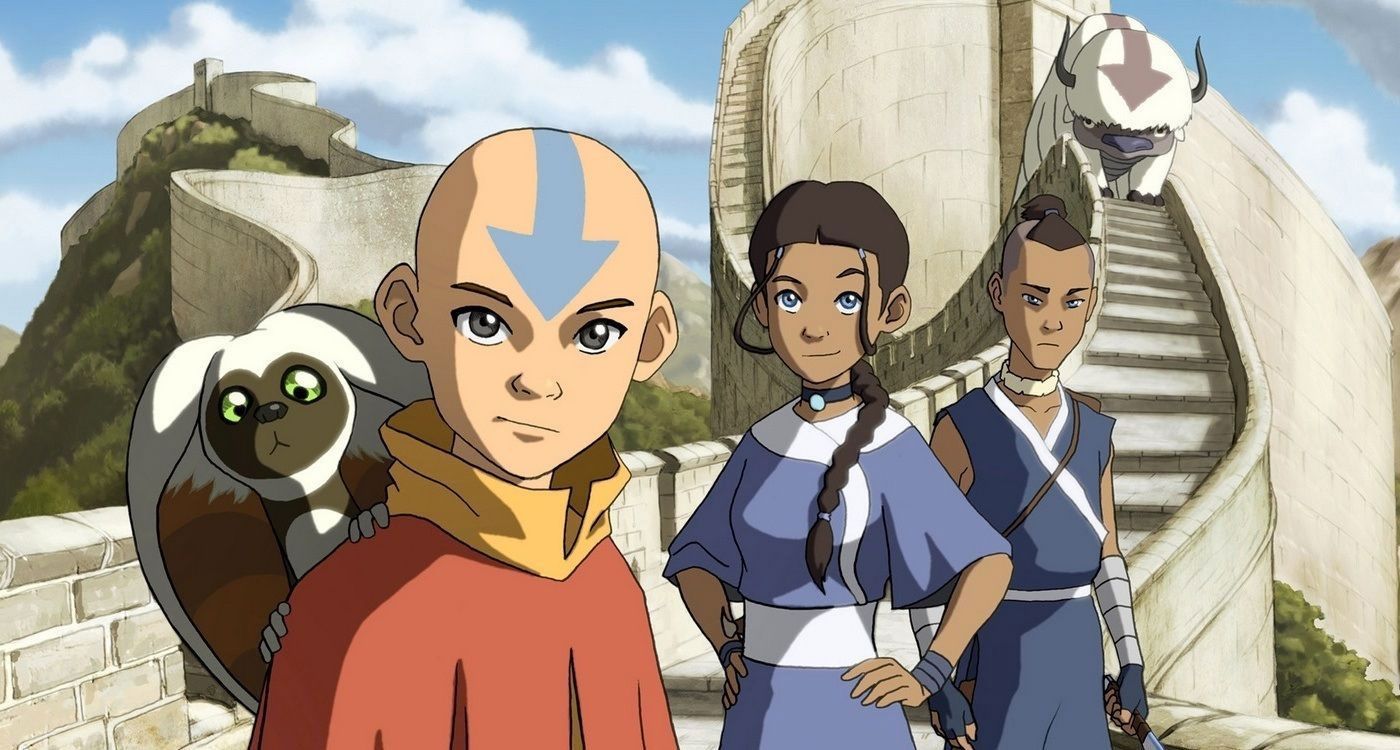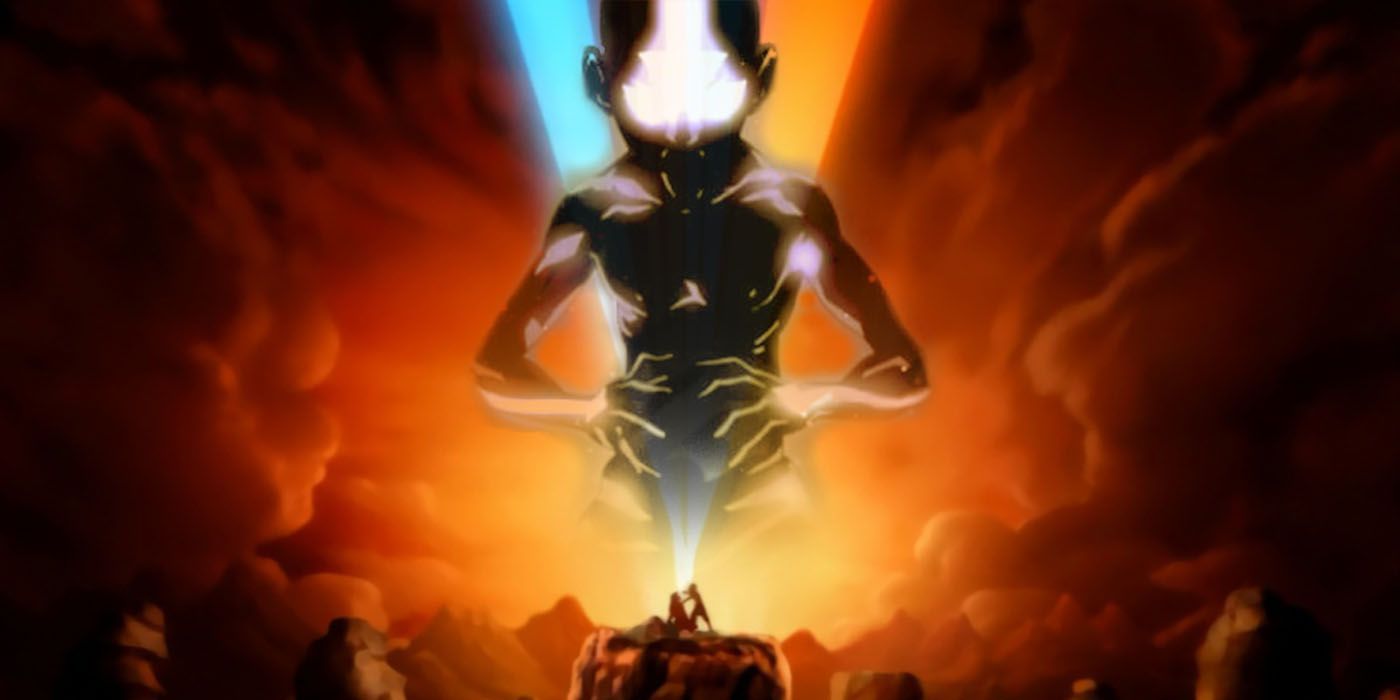Sticking the landing to a TV show is an incredibly hard thing to do, especially in long-form TV narratives that build a story up over several seasons. Audiences expect an escalation of events that topple all previous season finales, tie up loose ends, and give every character a moment to shine, all while delivering an emotionally-satisfying closure to character arcs and the overall story. Thus, it is very easy for TV shows to fail to deliver any of these and be branded as disappointing. But while some shows do manage to give satisfying endings, few have done so as perfectly as Avatar: The Last Airbender, now celebrating its 16th anniversary today.
From the opening moments of the first episode, the story of Avatar Aang was building up to a clear ending: an epic fight against Fire Lord Ozai to restore balance to the world. Already in Episode 8, we had a ticking clock in the form of Sozin's Comet, which gave the show a one-year timeframe, after which the Fire Lord would have enough power to conquer the world unopposed. Unlike the Game of Thrones showrunners just happening to know the books' ending ahead of time, this signaled to the audience that A:TLA had no intention of continuing for years and years until it ran out of steam: The show was picked up for three seasons right from the start, meaning that the creators had a clear end goal in mind and were always building up towards that ending.
Together with the ticking clock of the comet giving our characters a clear deadline to save the world, we also knew from the very beginning that Sozin's Comet would give firebenders immense power. For the final battle, the team at JM Animation went all out on making bending look like a superpower that can shape the future of the world — watching firebenders torch the Earth Kingdom becomes something straight out of Apocalypse Now, and the finale ultimately peaks with the climactic Agni Kai duel between Zuko and Azula.
Not only is this an emotional conclusion to Zuko's character arc of the previous three seasons, as he finally embraces his good side and achieves redemption by fighting his sister for the soul of the Fire Nation, and not only does this bring Azula's descent into madness to an end (Iroh warned us about her a whole season prior); the duel itself is a breath-taking sequence that showcases the haunting beauty and the absolute horror that is firebending, with the Fire Nation Royal Palace becoming a casualty as buildings are torched instantly in vibrant seas of fiery reds and blues, while composer Jeremy Zuckerman orchestrates the most exquisite piece of scoring ever heard in a children's cartoon.
Zuko may have had the more emotional conclusion to his character arc, but he's not the only one to get a moment to shine in this finale. Take Sokka, the one non-bender of Team Avatar who always came up with the battle plans, and always came up short of victory by some logistic hole. In the finale, he recognizes he won't be able to help Aang fight the Fire Lord, but he can help take down the Fire Nation fleet with nothing but ingenuity, a good Fire Nation accent, and a birthday party invitation.
Like any good battle-shonen anime, The Last Airbender knew how to handle power-ups in a way that felt neither redundant nor out of nowhere. Toph uses her newly-invented metalbending skills to help bring down the Fire Nation airships, while Katara pulls a new waterbending technique to defeat Azula. Katara even heals Zuko — the guy she blamed for the death of her mother — after he took a lightning bolt to the chest to save her. Every member of Team Avatar (even Suki) contributes to the defeat of Fire Lord Ozai while also bringing their stories to a gratifying conclusion.
Outside of Aang and Zuko, however, the biggest emotional pay-off in the finale comes from everyone's favorite uncle, Iroh. The indisputable heart of the show, Iroh was always the voice of reason, the only character that seemed to look beyond nations and allegiances and simply knew who was right or wrong, even if it was recognizing his own role in the war. In the first season, we learn that Iroh is considered a disgrace in the Fire Nation for his failure in capturing Ba Sing Se after a 600-day siege, because he was distracted by the tragic death of his son. In the finale, Iroh teams up with all the old teachers we'd met throughout the series, and together they retake Ba Sing Se from the Fire Nation. As Iroh burns a Fire Nation flag hanging outside the Royal Palace to reveal the Earth Kingdom insignia beneath it, he spiritually redeems himself.
Even if it never really focused on subverting tropes, but embracing them, The Last Airbender managed to play with our assumptions of the Hero's Journey in its finale. We knew Aang would have to face the Fire Lord by the end of the show, but the writers pull the rug from under the audience at the last minute by reminding us that Aang is and always was an air nomad. Even if the fate of the world depends on it, Aang is not just going to go out and assassinate Ozai, because he's always believed in the sanctity of all forms of life. Rather than having the villain accidentally kill itself because of a technicality like Voldemort, Aang gets a deus ex machina that, while sudden, perfectly aligns with who he is as an Avatar.
In each season, we've seen Aang grow not just as a person, but as a spiritual being. In the first season finale, he fuses with the Ocean Spirit, and in the second season, he learns to unlock his chakras and control his Avatar State. It makes sense, then, that Aang defeats the Fire Lord by tapping into the spiritual source of all bending and finally becoming the airbending master and high monk he was meant to be but originally tried everything to avoid becoming. Where many TV finales recognize that time had gone by between its first and last episodes, and spend time saying goodbye to that time, The Last Airbender has its audience say hello to the characters. This is a show about kids fulfilling destinies forced upon them by their forefathers. By the last scene of the finale, each character has gone through enormous change and come out the other side as grown-ups. Whether it's as grand scale as the banished Prince Zuko becoming Fire Lord, or as small scale as Katara saving the day by healing her once-sworn enemy, or Iroh finding his purpose as a tea shop owner in the city he once meant to conquer, we left the show after finally who these characters really are.
One of the strengths of the final installment is how perfectly its four-episode structure is split between character moments and memorable dialogue in the first half, and non-stop action in its second half. It serves as a feature-length send-off to The Last Airbender that gives fans all kinds of fan-service without feeling forced. There's the anticipated reconciliation between Zuko and Iroh in the first half, the return of some side characters, and lots of memorable dialogue choices. Then the last half is nearly entirely devoid of dialogue, with the action dictating the flow of the story while Jeremy Zuckerman's beautiful score dictates the emotion.
Plus, like all the best action blockbusters of the past couple of decades, the final showdown takes places on different fronts like in Star Wars: Katara and Zuko battle Azula; Sokka, Toph and Suki immobilize the Fire Natio fleet; Iroh leads the Order of the White Lotus' ground forces against the occupiers of Ba Sing Se, and finally, Aang duels Ozai. It's the most exhilarating battle scene until The Clone Wars finale aired last year, and it still finds time to breathe and let out some jokes, like Sokka fooling some Fire Nation soldiers with a fake birthday party, or how Toph pretends to be the "Melon Lord" during a mock fight against Ozai.
Whenever a TV show or big-budget sci-fi trilogy nears its end, it faces more pressure and anticipation than at any other point in its run. There have been many great TV finales since Avatar: The Last Airbender went off the air, but few have managed to hit a chord with its audience as effectively as the story of Avatar Aang did. Over a decade later, this is still a perfect finale.
Avatar: The Last Airbender is streaming now on Netflix.


